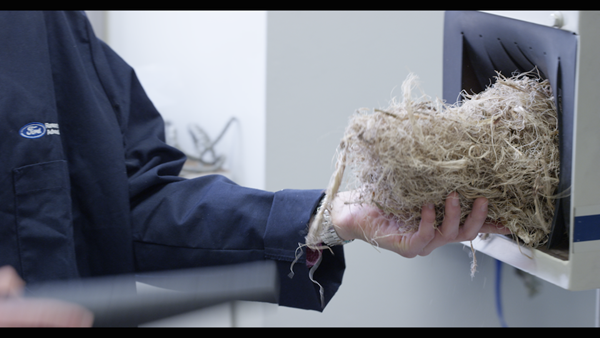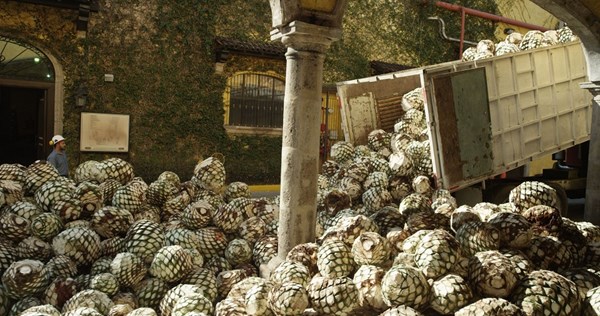Car Parts Made From Agave?
Ford and Jose Cuervo explore development of sustainable bioplastic.

Ford and Jose Cuervo explore development of sustainable bioplastic.
As a company that has long considered itself a leader in biomaterials development for the automotive sector, it was not surprising to hear that Ford Motor, Dearborn, Mich., teamed up with tequila giant Jose Cuervo, to develop a sustainable bioplastic using the fiber byproduct of agave plants.
The Plastics Research Group, part of Ford’s Research & Innovation Center, has been developing bioplastics for over a decade, starting in 2000. In fact, Ford now uses eight sustainable-based materials in its vehicles including soy foam, castor oil, wheat straw, kenaf fiber, cellulose, wood, coconut fiber, and rice hulls.
Now, researchers are testing the developmental bioplastic, for which initial assessments indicate to be very promising due to its durability and aesthetic qualities. Its use in vehicle interior and exterior components such as wiring harnesses, HVAC units, and storage bins is being explored. Said Debbie Mielewski, Ford senior technical leader, sustainability research department, “As a leader in the sustainability space, we are developing new technologies to efficiently employ discarded materials and fibers, while potentially reducing the use of petrochemicals and light-weighting our vehicles for desired fuel efficiency.”
The growth cycle of the agave plant is a minimum seven-year process. Once harvested, the heart of the plant is roasted, before grinding and extracting its juices for distillation. Jose Cuervo uses a portion of the remaining agave fibers as compost for its farms, and local artisans make crafts and agave paper from the remnants.
Teaming up with Ford is part of the tequila maker’s broader sustainability plan to develop a new way to use its remnant fibers. Said Sonia Espinola, director of heritage for Cuervo Foundation and master tequilera, “As the world’s No.1-selling tequila, we could never have imagined the hundreds of agave plants we were cultivating as a small family business would eventually multiply to millions. This collaboration brings two great companies together to develop innovative, earth-conscious materials.”
Noting that a typical car has about 400 pounds of plastic, Ford’s Mielewski added, “Our job is to find the right place for a green composite like this to help our impact on the planet. It is work I’m really proud of, and it could have a broad impact across numerous industries.”
According to the United Nations Environment Programme, 5-billion metric tons (over 11-trillion lbs) of agricultural biomass waste is produced each year. A byproduct of agriculture, the supply of materials is abundant and often underutilized. Yet the materials can be relatively low cost, and can help manufacturers to offset the use of glass fibers and talc for more sustainable, lightweight products.
For more on bioplastics, see PT’s Materials Database.

Related Content
-
Cling Wrap Made from Potato Waste
Australia’s Great Wrap to expand into U.S. with home compostable cling wrap and its refillable dispenser made from recycled PET bottles.
-
At NPE2024, Follow These Megatrends in Materials and Additives
Offerings range from recycled, biobased, biodegradable and monomaterial structures that enhance recyclability to additives that are more efficient, sustainable and safer to use.
-
Honda Now Exploring UBQ’s Biobased Material Made from Unsorted Household Waste
UBQ is aiming to expand its reach for more sustainable automotive parts as well as non-automotive applications.















